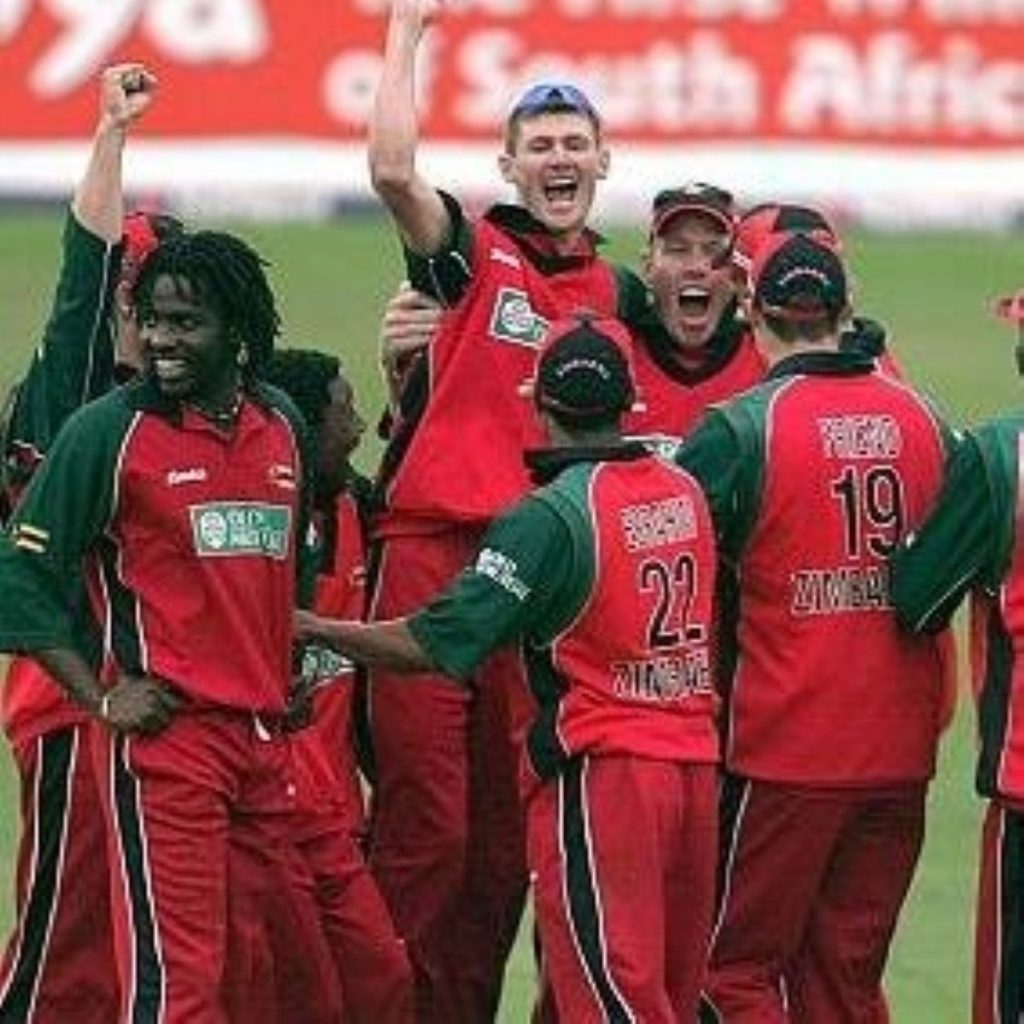Brown ‘not planning’ Zimbabwean sports ban
Gordon Brown is not planning to ban Zimbabwean athletes from competing in Britain as part of a tougher stance against Robert Mugabe.
Downing Street said it was “surprised” at claims by the BBC’s Inside Sport that the prime minister is prepared to impose a ban on Zimbabwean athletes as a protest against Mugabe’s human rights abuses.
Although targeted at the Zimbabwean cricket team, this would have affected other athletes such as Manchester City striker Benjani Mwaruwari or golfer Nick Price.
It would also have likely meant that England was barred from hosting next year’s Twenty20 World Cup.


The prime minister’s official spokesman confirmed this morning: “It is not the case that the prime minister is considering a blanket ban on Zimbabwe’s sportsmen.”
As a compromise measure, the government could ban the Zimbabwean cricket team from playing two planned five-day Test matches and three one-day internationals this summer.
However, Number 10 made clear this would be a decision for the England and Wales Cricket Board (ECB), although “if they decided they want to ban Zimbabwe, we would support them,” a spokesman added.
This tough stance would force the cricketing authorities to pay an estimated £225,000 in compensation.
A spokesman for the Department of Culture, Media and Sport said: “There are ongoing discussions between the government and the ECB, but no decisions have been made.”
Foreign secretary David Miliband has already said the Zimbabwean cricket tour would not “send the right message”.
“The situation in Zimbabwe is obviously deeply concerning. I think that bilateral cricket tours at the moment don’t send the right message about our concern,” he said last month.
Mr Brown’s tough stance has been welcomed by former Zimbabwean cricketer Henry Olonga, who protested against Mugabe at the 2003 Cricket World Cup.
He told BBC Radio 5 Live: “It’s great to see that Gordon Brown is taking a much stronger stance than his predecessor.
“Zimbabwe is in a desperate position, 100,000 per cent inflation and there’s poverty across the whole country, so it’s a desperate, desperate situation.”









